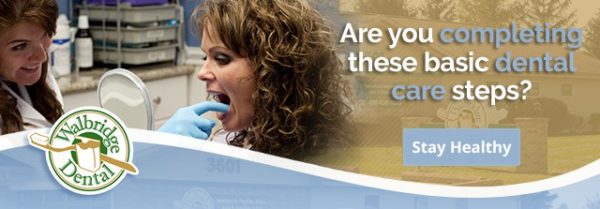
The best way to prevent cavities is to brush and floss daily. But your mouth has surfaces that even floss can’t easily reach. These grooves are all over and often lead to decay that goes unnoticed until your next visit to the dentist. So how can you keep those grooves protected if even good dental care habits aren’t enough? Your dentist may recommend dental sealants. Sealants for teeth fill those gaps completely and make sure the bacteria in your mouth can’t attack your teeth directly.
What Are Dental Sealants?
Dental sealants are made of a thin resin coating. Painted onto the chewing surface of permanent teeth, they protect you from bacteria and decay. Not unlike enamel, sealants for your teeth create a barrier that shields your teeth from direct contact with acidic waste left behind by bacteria.
The most frequent use of dental sealants is to protect your molars and premolars. These are the teeth located in the back of your mouth. Due to their grooves, also known as fissures, bacteria are harder to remove with bristles from your brush or floss than other surfaces in your mouth.
While dental sealants can’t remove bacteria, they coat the grooves to keep them clean.
Are Dental Sealants Effective?
Yes! According to the American Dental Association, sealants on permanent molars can reduce your chances of developing cavities by 80 percent. As one part of a comprehensive dental care plan, which includes brushing, flossing and regular trips to your dentist, sealants can drastically reduce your risks of tooth decay.
One misconception about sealants is that they can cause cavities. This isn’t true, although sealants can create surfaces that can’t be brushed, as they’re underneath the sealant. If you have bacteria in these pockets, it can be difficult to remove. However, studies show that in most cases, sealants are effective to stop the progression of certain types of cavities.
Who Should Consider Dental Sealants?
The most common candidates for dental sealants are children and teenagers. In fact, having sealants for permanent molars and premolars applied as soon as they come in can protect a child’s teeth until they’re teenagers.
For adults, it’s not always a given. Most dentists will approach each case separately and make their decision not based on age, but instead based on a cavity risk assessment.
Every mouth is unique. Some adults have teeth that may have more surfaces that are hard to reach with routine dental care. This, combined with a history of cavities on your molars, would make you a viable candidate for dental sealants in adulthood.
Are Dental Sealants Permanent?
No. On average, dental sealants will last anywhere from five to ten years. How long they last depends on how much wear-and-tear they experience. If you take care of your teeth and avoid acidic foods, they can last closer to ten years. Otherwise, they may wear away sooner.
Your dentist will want to see you regularly to keep an eye on your sealants. If they start to wear away in certain spots, they will cease to offer you any protection. Your dentist can decide whether to reapply the sealant or not.
Do Dental Sealants Contain BPA?
The short answer is yes. However, that shouldn’t be cause for alarm. Not unlike dental x-rays, the fear is disproportionate to the risks. According to the ADA, dental sealants expose you to about .09 ng of BPA. For comparison’s sake, breathing exposes you to about 8 ng. That means simply breathing exposes you to 100 times the amount of BPA that sealants will.
Additionally, cosmetics, receipts and even food contain higher levels of BPA that sealants. With the benefits that sealants bring for your teeth, the small amount of BPA is negligible.
Can’t I Just Get Fillings When I Need Them?
Due to the upfront costs of sealants, some patients wonder if it would make more sense to wait until you develop cavities and simply get fillings instead. You might find that your dentist will recommend against waiting to protect your teeth from permanent damage.
While sealants can be reapplied, your natural teeth and their protective coating can’t be restored – they can only be treated. Decay leads to permanent damage that weakens your teeth and makes you susceptible to more significant dental health problems later in life.
Sealing your teeth is a preventative measure that can save you money on dental care years later. It also improves your chances of having healthy teeth throughout your life – as your childhood and teen years play a key role in your overall dental health.
Do Dental Sealants Replace Fluoride?
While sealants protect your teeth from cavities, they don’t do it in the same way that fluoride does. Fluoride actually promotes tooth remineralization – which helps counteract tooth decay. Fluoride and sealants work together to protect teeth and strengthen them against decay. Just because you received dental sealants doesn’t mean you should avoid fluoridated water, toothpaste or mouth washes.
Contact Walbridge Dental
Do you need dental sealants? We can help! If you want to prevent cavities or just need information, the professionals at Walbridge Dental provide complete family dental care to families in the Millbury community. Contact us online to set up an appointment now or call us at 419-836-1033.
Connect on Social Media!

